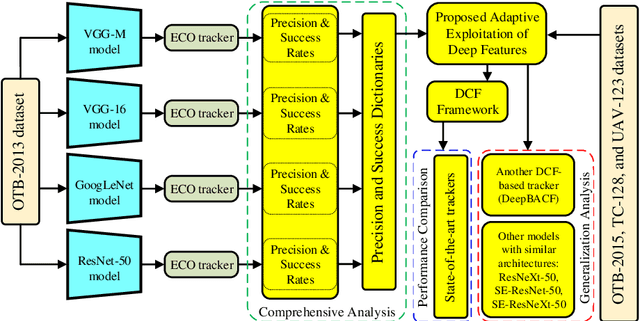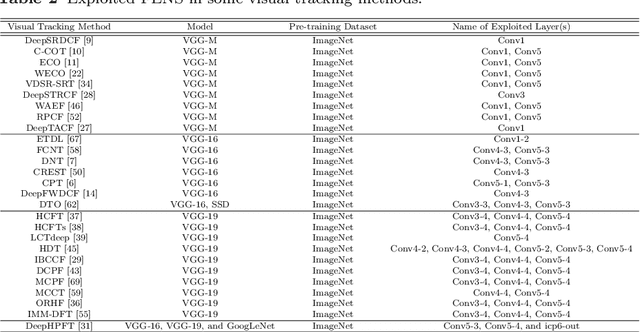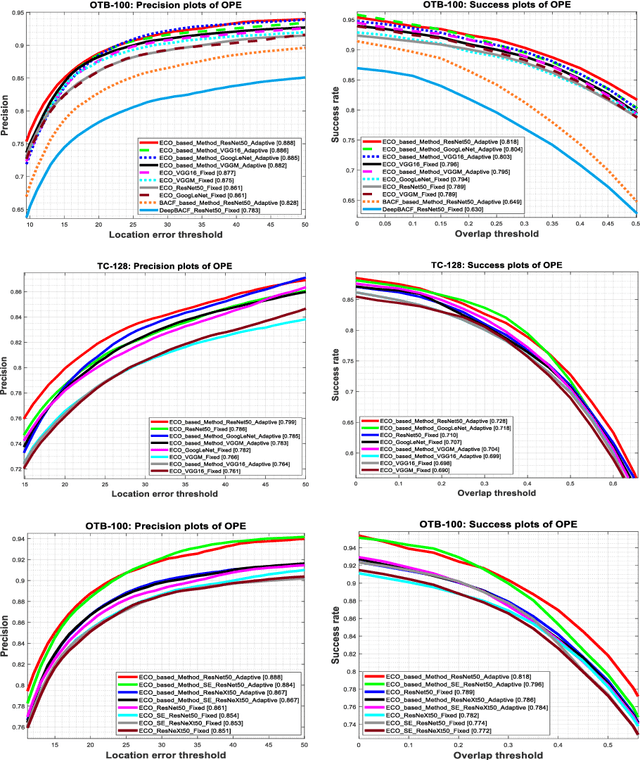Adaptive Exploitation of Pre-trained Deep Convolutional Neural Networks for Robust Visual Tracking
Paper and Code
Aug 29, 2020



Due to the automatic feature extraction procedure via multi-layer nonlinear transformations, the deep learning-based visual trackers have recently achieved great success in challenging scenarios for visual tracking purposes. Although many of those trackers utilize the feature maps from pre-trained convolutional neural networks (CNNs), the effects of selecting different models and exploiting various combinations of their feature maps are still not compared completely. To the best of our knowledge, all those methods use a fixed number of convolutional feature maps without considering the scene attributes (e.g., occlusion, deformation, and fast motion) that might occur during tracking. As a pre-requisition, this paper proposes adaptive discriminative correlation filters (DCF) based on the methods that can exploit CNN models with different topologies. First, the paper provides a comprehensive analysis of four commonly used CNN models to determine the best feature maps of each model. Second, with the aid of analysis results as attribute dictionaries, adaptive exploitation of deep features is proposed to improve the accuracy and robustness of visual trackers regarding video characteristics. Third, the generalization of the proposed method is validated on various tracking datasets as well as CNN models with similar architectures. Finally, extensive experimental results demonstrate the effectiveness of the proposed adaptive method compared with state-of-the-art visual tracking methods.
 Add to Chrome
Add to Chrome Add to Firefox
Add to Firefox Add to Edge
Add to Edge